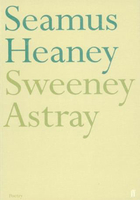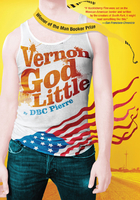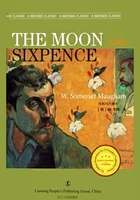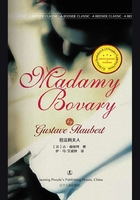The following account was furnished by a young surgeon, late of St Bartholomew's Hospital, now settled in Harley Street, and a decided luminary of his profession. He does not, however, wish his name to be mentioned in connexion with the Palmer case-not, at least, until his friend's character (as he hopes and trusts) shall have been vindicated in all respects. Disclosure would embarrass him professionally.
"A SURGEON"
One can judge a man only as one knows him. History has made the name of Nero odious, yet it is admitted by the historian Suetonius that, after his suicide, loyal friends still laid flowers on the imperial tomb, and continued to play certain musical pieces which he had composed, though no longer forcibly obliged to applaud them-indeed, quite the reverse! Tears of sincere sorrow were likewise, we read elsewhere, shed at the tombs of such monsters as Genghis Khan, William Rufus of England, and Lucrezia Borgia the Italian poisoner. Not that I should have shed any myself; but allow me to depose-and I would sign my name to this but for the delicacy of my present situation as a consulting surgeon to Royalty-that I found William Palmer a thundering good fellow and a deuced good friend.
He came to London in the latter part of the year 1845 and, like myself, engaged the knowledgeable Dr Stegall as his 'grinder' to help him pass the medical examination and secure his diploma. He offered Dr Stegall a fee of fifty guineas should he succeed, to which, I understand, his widowed mother promised to add the sum of ten guineas; and his friend, Mr Jeremiah Smith, a solicitor of Rugeley, a further ten.
For some days after his arrival in London, Will Palmer lodged at Dr Stegall's house; but the course of behaviour expected of him there did not suit his book at all. It was 'early to bed, early to rise', constant study and no distractive pleasures-unless he counted it a pleasure, of an evening, to participate in a family game of cards at a half-penny a hundred points, or in a dramatic reading of Mr Dickens's Barnaby Rudge, each person representing one character in the novel, while Dr Stegall undertook the narrative. Will Palmer had just come into a fortune-some seven thousand pounds, I believe-and greatly enjoyed the sense of liberty that being flush gave him.
Once Dr Stegall gently rebuked Will for having bought, in the space of four days, a gold-headed malacca cane, a jewelled snuffbox, and a French watch of exquisite workmanship. 'Money, Dr Stegall,' replied Will, 'is meant to be spent. It's the mean habit of hoarding that dries up trade, cripples industry, and bloats the funds of the rogueish assurance societies. What's more, these trinkets, as you call them, are solid investments which will add to my consequence when I put up a brass plate as a qualified surgeon.'
But that same afternoon he honoured me with a confidence during our walk in the Hospital grounds. 'Charley,' he said, 'if you knew how my inheritance has been earned, you would hardly blame me for the small value I give it.'
'I'm ready to listen,' I replied.
'Then here goes,' he said. 'My father ground the faces of his workmen in a shameful manner. Moreover, the principal with which he started his sawyer's business was got together by very dubious means. If I now give you the story, it's only to show you how wholeheartedly I detest my origins, and how determined I am to start afresh.'
'You want to be your own ancestor?' I suggested. 'As one of the ancient Romans, a man of vulgar birth, very happily put it.'
'That's the nail hit on the head, Charley,' he agreed. 'Well, to tell of my maternal grandfather: he began as a gunner in the Royal Navy and, pray spare me your blushes if I confess that he acted as bully to one Peggy Taff who kept a brothel in a back street at Derby. Peggy drove a pretty good trade, and was continually sending my grandfather to the bank with her earnings. The old scoundrel took the precaution to enter them all in his own name, not hers, and at last, when she reproached him with showing too much fondness for one of the women of the house, a certain Mrs Sharrod, he knocked her about severely and drew the whole of her fortune from the bank, some five hundred and sixty pounds. My grandfather and Mrs Sharrod, who later became my grandmother, migrated to Litchfield, where they rented a small farm and lived like respectable people. My mother, their daughter, used to visit Litchfield Market, twice a week, selling poultry, butter and eggs. They did well enough, and presently settled in King's Bromley, near Stafford, where Field-Marshal the Marquess of Anglesey has his seat: that glorious old soldier who fought at Corunna, lost a leg at Waterloo, and afterwards became Lord Lieutenant of Ireland.'
'I saw him in Queen Victoria's Coronation Procession,' said I, 'and how the crowd cheered!'
Will sighed and went on: 'My mother had two strings to her bow: the Marquess of Anglesey's steward, and my father, a young sawyer of low origin. The steward was named Hodson, and would have married my mother, but that he already had a wife; so my father saved him the trouble, by marrying her himself. Mr Hodson continued to be romantically attached to my mother; indeed, I've been told that my eldest brother Joseph may thank him as the author of his being. My own parentage was never, I understand, in doubt; because soon after Joseph's birth the family quitted King's Bromley and came to Rugeley. By this time, my father was in a fair way to make his fortune, for he and Hodson had not only gone snags in my mother's favours but done the same with the profits of the Marquess's timber, then being felled to supply the Royal Navy. The Marquess was away in Ireland, and his eldest son, the present Marquess, showed such negligence that Hodson had a clear run. Now, it seems that while Hodson courted my mother, my father was quietly marking the fallen logs 1,1; 2,2; 3,3-so that he got six for the price of three. Or even more; an old fellow by the name of Littler who worked for him in those days has told me that he had seen no less than ten No. 10's carted out of Shoughborough Park during a single day. My father prided himself on a little rhyme which he had composed himself; and taught us at his knee:
It is a sin to steal a pin,
But guineas are fair game.
The hound who hounds a million pounds
Writes "Lord" before his name.
This inheritance of mine, Charley, is ill come by, and the sooner it's spent, the better I'll be pleased.'
I felt dismayed by the bitter tones in which Will Palmer branded his father as a cuckold, his mother as an adulteress, and both of them as thieves. His story reminded me forcibly of the Biblical text: 'The fathers have eaten sour grapes and the children's teeth are set on edge.'
'Nay, but Will,' I objected, 'I heard you tell Dr Stegall the other day that you were directly descended from Sir James Palmer, Chancellor of the Order of the Garter, in the reign of the martyred Charles I; and from his son Roger, the Earl of Castlemaine, a boon companion of the Merry Monarch, Charles II!'
'So I did,' he said carelessly, 'but Stegall is no friend of mine; and I reserve the truth for my friends only, if I may count on you as such. To do so relieves my heart of a heavy burden. Though it may be unscientific to believe that dishonesty, infidelity, or cruelty is inheritable-as one may well inherit a gouty tendency, or short sight, or a syphilitic taint, or melancholia-I can't choke back the resentment I feel towards my father. Now, look'ee, Charley, I don't relish Stegall's household or the regimen he forces on me. I shall clear out, bag and baggage, at the end of this week. What do you say to rooming with me? I hear you well spoken of as a thoroughbred entire, sound in wind and limb, without vices and a good stayer. In short, I'd be proud to have you as my stable mate.'
'If it puts me to no greater expense than I am incurring at present,' I answered, 'I should be most happy to join you. I won't say that I'm enchanted with the company I'm keeping; but my purse is light, and the rooms are cheap.'
'Tell me more,' he says, handing me an uncommonly good cigar and igniting it for me.
'Well,' I said, 'it's this way. My "chums", as they call themselves, are sad dogs; very sad dogs indeed-though what the significance of "sad" in this phrase may be, I'm sure I don't know. They are, in point of fact, confoundedly gay, so gay as to be perfect bores. The summum bonum of their happiness seems to consist in strolling along the Haymarket or Regent Street of an evening, clad in ruffianly overcoats, smoking foul black cigars, and peering under the bonnet of every poor little dressmaker or milliner making her solitary way home, wearied after a day's toil, and weighed down by a heavy oilskin-covered wicker basket. They call it a lark to ogle the unfortunate girls and put them out of countenance-I call it blackguardly. Then, when the shops are closed, and they have refreshed themselves at some public-house bar with copious draughts of half-and-half, they call it a lark again to march arm-in-arm, four or five of them, down quiet streets and shouting "Lullaliety!" at the tops of their voices.'
'Myself, I could never abear boisterousness,' says he.
'And I draw the line sharply,' I continued, 'at the sport of wrenching knockers off street doors, and proudly displaying them to one's fellow-chums, very much as a Sioux or Ojibway "brave" exhibits his scalps.'
'What are their peculiar habits at table?' Will asks with mock gravity, as one might inquire about some strange variety of jungle animal.
I told him: 'They make beer their morning beverage-"drunk from the native pewter," as the cant phrase is-and chaff me when I suggest that tea or coffee, both of which quicken rather than dull the intellect, may be the more civilized brew. "Charley the slop-drinker" one of them waggishly called me, until I flung a pint of half-and-half in his face, and followed it with the native pewter. There came no more waggishness from that quarter for a while, I warrant you. They breakfast from whatever happens to be in the cupboard-bread, cold meat, a stale pasty, or a petrified cheese-rind-and if the beer is expended, gin and water must serve. Generally half a dozen chums from the lodgings opposite thrust their way in, to join the merry meal and talk over last night's lark-how Johnny bonneted the policeman, or how old Tom stole the garter off a young lady's leg as she was mounting into a hansom cab. Savages, Will, ignoble savages! Nor do these visiting chums remember to bring the necessary breakfast tools with them; but the meat and cheese is sliced with a rusty pocket-knife, or the very scalpel with which one of my party has been operating on a mouldering human femur, now carelessly tossed into the cupboard next to the loaf of bread. Gin and water is drunk from pickle-jars or gallipots, or the ornamental vases on the chimney-piece.'
Will chuckled at my recital, and I went on to tell of my chums' dinner taken at a 'slap-bang', or cheap eating-house, where they ate cow-heel or hot alamode, and offered familiarities to blowsy women waiters, who returned them in kind; I also described their disorderly supper. 'You'll live a very different life when you room with me, Charley,' he said. 'You'll eat and drink of the best, and never have a chum in the world to plague you.'
Will now rented a fine set of rooms in Bartholomew Close, belonging to a fellow by the name of Ayres, and fitted them up in approved medical style, covering the walls with anatomical charts and models, and laying out two or three hundred guineas on professional works. This was a great convenience to me during my home-studies, and Will did not deceive me by demanding any larger contribution than I had paid at the hole-in-the-wall from which he rescued me. I drank tea for breakfast out of a handsome china cup, and ate bacon and eggs, or grilled kidneys, or kedgeree and fish (a capital food) off a well-heated plate with excellent table silver. Our rooms were never in disorder, and Will himself showed a particular niceness about his morning dress, which was neat rather than showy; and though somewhat provincial in his manners at the start, he soon learned London etiquette and became quite the gentleman.
So far as I know, he always paid his debts, even to tailors, which many a peer of the realm disdains to acknowledge-as though tailors were not also God's creatures, and entitled to payment for their tedious labours! When not walking the hospital, I stayed at home and studied; but for the first few months Will Palmer did not join me and proved very remiss in his attendance at the Lecture Theatre. I thought this none of my business; for if he chose to make the rounds of the betting-houses and mix with the racing fraternity-already his thoughts were turning to the Turf-at least he did not bring any doubtful characters back with him to Bartholomew Close. He respected my quiet, and showed me the most thoughtful consideration.
One evening, I remember, he said to me: 'Charley, you look fagged. Much study is a weariness to the flesh. Come out with me to supper! I'll stand you treat, and shan't expect any return but the pleasure of your company.'
I could hardly refuse, though I pointed out that if he took me to a more than ordinarily genteel place, I had no suitable togs for the occasion.
'Oh, damn the togs!' he answered. 'Borrow some of mine, if you like-we're much of a height, and your shoulders are as broad as mine.'
So presently we walked down the Strand, where he led me to an oyster shop, described as a 'night house', where scarlet lobsters and crabs like giant tea-roses jostled one another in appetizing profusion on the stone counters; where pickled salmon lurked in shady groves of fennel; where Finnan haddocks, truly Scotch in their hardness and crispness were ranged in thick layers; where oyster tubs crowded the walls; and where a gilt placard hanging from the flaring gas jet invited us to partake of chops, kidneys, or steaks. At the counter stood a row of swells, cooling their parched throats with Colchester natives, and swearing unrestrainedly at the flannel-aproned attendants. Through the doorway of an inner room I caught sight of many ladies of the Town, in silks, satins, feathers, and plenty of 'slab', that is to say, red ochre and bismuth, staining their cheeks.
Will was leading the way in, when he turned sharply about and came out again. 'Let's away,' he muttered, 'there's a fellow here whom I'd as lief meet as the Devil himself.'
'Who can that be?' I inquired, disappointed of my oysters and crab-meat.
'A fellow named Dawson,' he replied, 'who owns a big house near Stafford, and has done me an ill turn. I'm determined to marry his ward, the sweetest and most engaging little girl in the world. But he stuffs her ears with ill-natured tales against me. It's my opinion he wants to make her his third wife.'
We retraced our steps and presently walked across St Martin's Lane, where he led me to a public house, and said: 'Charley, I shall now show you England's greatest living hero, next to the Iron Duke, of course.' He nodded at the publican behind his bar, a white-haired, battered giant who stood ringed about by prize fighters with broken noses, cauliflower ears, and bleary eyes, and by a mixed assembly of dog-fanciers, book-makers, ratting-match concocters, and the very scum of sporting life generally. Ah, those cutaway coats, the nankeen trousers fitting tightly to the leg, the bell-shaped hats, the blue and white neckties, the queer jargon and outrageous oaths!
'Who's your friend?' I asked.
'Who's he, indeed, Charley? Are you really so green? You should be ashamed to ask the question! Why, that's the great Tom Cribb, formerly pugilistic champion of England; who sparred in the presence of the Russian Tsar and the King of Prussia in the year before Waterloo; and who guarded the entrance to Westminster Hall at the disorderly Coronation of his late Majesty, King George IV. Though now attained to the age of seventy, he could still, if he pleased, dash all the teeth from your jaw, with a mere back-hander.'
Then we turned up Little New Street, even at that late hour blocked by the carts opposite a cheesemonger's; along King Street and the illumined windows of the Garrick Club; then down a steep flight of steps, and into Evans's Supper Room.
'Here you'll find a scene rather more to your liking, I hope,' said Will Palmer. And, in effect, Evans's of Covent Garden is an establishment that has ever since delighted me when I could afford to sup there. You don't know it? Why, it's the finest place of its kind in the metropolis-I rate it far above Rhodes's, or the Cyder Cellars in Maiden Lane, or the Coal Hole in the Strand. It's divided into two parts, do you see? First, the café, furnished in truly Parisian fashion-except that it doesn't spill over into the street-and hung around with portraits of the most famous theatrical personages in ancient and modern times. The café is where men of importance from every walk of life gather to exchange gossip. In fact, so much gossip is exchanged that a 'syndicate', or combination, of newspaper reporters has been formed to spread out among the tables, each secretly cocking an ear to the disclosures of the group sitting nearest him. Afterwards they pool their takings, perhaps less honestly than the members of a thieves' kitchen, but honestly enough to keep the syndicate in being. The newspaper proprietors pay them a fixed sum for their suppers so long as they continue to collect, or at least fabricate, printable news.
Then there's the Singing Room, a hall with a platform at the upper end on which a grand piano is stationed, and to which the singers climb when called upon by the chairman who sits beneath. The important business of eating is solemnly and industriously undertaken here by six or seven hundred men. Ladies are, of course, debarred, owing to the freedom of language which is permitted the performers; and women of the Town equally so, owing to the respectability of the audience. It happened that some most distinguished guests were present on this occasion, including several Members of Parliament, and two tided race-horse owners whom Will pointed out to me; and (a thing that interested me far more) seated at the next table to us were two men whom I recognized as the famous novelists William Makepeace Thackeray and Charles Dickens! Mr Thackeray, a member of the adjoining Garrick's Club, still makes Evans's, as he has put it 'my nightly chapel of ease'. He was then engaged in writing his immortal Vanity Fair, though under the misfortune of being married to an insane wife. Mr Dickens, already the author of Pickwick Papers and Oliver Twist, had just been offered, and accepted, the editorship of the recently founded Daily News; and Mr Thackeray had been invited to celebrate this success. Mr Dickens lay under the almost equal misfortune of being unhappily married to a woman who had borne him a number of children, while he loved her younger sister to desperation. Will told me all this, sotto voce, observing that domestic unhappiness often positively assisted men of genius to pen immortal works. 'Not that I would ever have read a word written by either of them,' he added, 'had it not been for Dr Stegall and his merry evenings. I find Ruff's Guide to the Turf engrossing enough.'
He ordered 'Black Velvet', (which proved to be champagne mixed with stout), a couple of dozen oysters, and thin slices of buttered whole-meal bread as a commencer; to be followed by rump-steak and a good claret. On the other side of our table sat a party of provincials, Wolverhampton tradesmen by their accent and garb, who gazed at Will with veneration and astonishment, until presently one of them recognized him. Will bowed gravely but paid no further attention, though it appeared that this was an old school-fellow; and the chap's 'Dang me, if it isn't Billy Palmer of the Rugeley Yard!' got drowned by a growl from his mates: 'Howd thy rattle, Tinny!' For now the Chairman had rapped on the table with his hammer and was crying: 'Attention, pray, my lords and gentlemen, to the music from Macbeth, No. 63 in the books, if you please!'
Up came the singers, half a dozen of them being boys with well-controlled trebles, and their rendering of Locke's beautiful melodies entranced us all. A decorous silence reigned, the audience abstaining from any clatter of hardware; but at the end broke into tumultuous applause, clapping their hands and beating on the table with fists and knife-handles.
I kept my ears open for some sublime or witty remark from the famous novelists, but apart from 'May I trouble you, Sir, to pass the mustard?' or 'These are indeed capital chops,' I heard nothing of interest except Mr Dickens's discourse on the beneficial effect of Sunday Schools in increasing the number of children who can read and write, thus yearly swelling the literate public. 'I rely upon these former Sunday School pupils to keep my young brood in beef, mutton and potatoes, my dear Thackeray,' said he, 'not upon the University men and their families.'
'So I judge by your style and your subjects,' Mr Thackeray replied with a sigh that doubtless referred to his own childless state; though it would have sounded deuced crushing to any writer who had a lower opinion of his talents than Charles Dickens.
The Chairman then rapped for a comic singer, whose name escapes me, but I remember that he sang 'The Derby Ram' in a very arch manner, persuading the audience to expect obscene words because of the rhymes that led up to them, yet shutting his mouth fast like a fresh-water mussel when he came to the point, and treating us to a most prodigious wink, as who would say: 'If you know the missing words, laugh by all means, gentlemen, but do not blame me for indecency-for I did not teach you them myself.'
Will kept replenishing my glass, only occasionally sipping at his own, and derived considerable amusement from the calf-eyes which a great, bearded, bald-headed Fellow of the Royal Academy was making at a handsome boy-soloist, as he sang:
'Mother would have wed me with a Tailor
And not gi'en me my heart's delight;
But give me the lad with the tarry trowsers
That shine to me like diamonds bright!'
He remarked: 'Although Cupid is said to have been a beautiful boy, I think it both foolish and unnatural to worship at any shrine save that of his mother Venus.'
The next song happened to be 'Here's a health to the King and a Lasting Peace,' bawled by a tremendous basso; and Will nudged me delightedly with his oyster-knife at the lines:
'And may misfortune still pursue
The senseless woman-hating crew…
Soon after eleven o'clock we slipped out. Will called a cab and we drove to Moss's, a first-class hell in the aristocratic neighbourhood of St James's Street. Moss's had a bright fan-light over the door, and a police constable stood guard on either side of the entrance. They had orders to take account of all visitors, their style of dress and apparent station in life; and hoped to be rewarded for their quiet 'good-night' with a half-crown, or a good cigar. 'Many little perquisites like these solace the arduous duties of the West-End peeler,' Will told me confidentially, as he pulled at an ivory bell-knob.
At once, as in the children's story of the White Cat, the portals flew open. In we went, and they closed behind us as if by magic. We found ourselves faced by a second door, iron-panelled and covered with green baize, from the centre of which a gleaming eye viewed us through a small square aperture. When Will nodded affably, an iron bar swung back, two bolts were shot, we mounted a flight of softly-carpeted stairs, and I was at last introduced to the mysteries of a London gambling house. Splendid rooms they were: brilliantly lighted, warmly curtained, much-mirrored; and in one of them stood a table spread with cold fowl, ham, tongue, beef and salads. 'These are provided gratis,' said Will, 'and so are the wines, spirits and cigars. Help yourself at Rabbi Moss's expense!'
Seeing me somewhat embarrassed by my situation, he muttered jovially: 'Cheer up, my hearty! Though you may not be one of Swan & Edgar's young men, nobody will mistake you for anything but the gentleman you are. Step over to the gaming table!'
This was an ordinary billiard table, furnished with cushions, pockets, and a rack of cues to disguise its illegal employ. Police raids had been frequent lately, and no sooner did the alarm go, than a billiard game began. As an added precaution, the lame croupier, a sharp-looking, wiry manikin, dispensed with the rake in vogue at Baden-Baden and Aix-using instead a hooked stick which was also his crutch. He called the odds, never making the slightest miscalculation; and a tall, blond-moustached, handsome man shook the dice box. Will told me afterwards that the latter was of noble family, held a commission in the Blues, and did not come here in the hope of pecuniary gain. It was merely to pass the time on his way home from the club, for he had a horror of going to bed. Two years later I saw this same swell leaning against the orchestra at the Opera, and examining the house through an enormous tortoise-shell lorgnette. He is now dead: killed at Balaclava with the Heavy Brigade, I understand.
'Seven's the main!' the blond moustache shouted.
'Seven's the main!' echoed the croupier. 'Make your game, please. The castor's backing it at seven, gentlemen!'
Down came the box, out rolled the dice. 'Eleven's the nick,' said the croupier. Stakes were raked in with the crutch, winners paid, and a fresh main called a quarter of a minute later.
Will ventured a five-pound note, and lost. Presently a bright thought occurred to him. 'Confess, lad,' said he, 'have you ever played?'
'Never,' I answered, 'and don't intend to.'
'Ah, but for me you surely will? I'll lay heavily on your virgin luck.'
'I haven't a shilling in my pocket,' I protested.
'Then here's a couple of sovereigns,' he said. 'I'll stake you. Lose, and it costs you nought. Win, and we go snags.'
Very reluctantly I placed the two coins on the nearest number. The main was again called, the dice shaken, and before I knew what had happened, six sovereigns were in my hand. 'I have kept my half-share,' he told me. 'Now stake your winnings.'
'No, no!' I cried. 'Let it be my perpetual boast that I never lost at dice, and never won less than six times my stake.'
He laughed at that and clapped me on the shoulder, saying: 'Ah, my lad, if only I had your firmness of character, what a noble life mine would be-and how infernally dull into the bargain!'
Then he placed his winnings on the number I had favoured, lost, and scratched his head. 'I believe old Moss rigs it somehow,' he mused. 'I wonder what the trick is. The dice aren't cogged.' He selected a splendid cigar from a box stamped 'Benson', offered it to me, took a couple for himself, and when I had been regaled with a glass or two of excellent hock, out we went.
To one policeman at the door he handed half-a-crown, to his companion the third cigar. We hailed another cab. Our next port of call was a Dance Hall in the vicinity of Leicester Square. We paid a shilling each to the money-takers at the entrance, with another sixpence for a reserved seat, and watched the noisy, ragged polka in progress. I have not been able to find this establishment since; but I remember thinking it strange that the gentlemen would dance, tall hat on head, and umbrella, or knobbed walking-stick, clasped in the same hand which guided a partner's delicate fingers. The buffet here was not a free one: indeed, I considered the prices exorbitant. However, Will settled me in a plush chair and supplied me with liver-sandwiches and more hock, while he went in search of a dancing partner. I felt most disinclined to follow his example, especially with one of the ladies of the Town who frequented this place-I recognized two or three among them as our out-patients-and therefore sat still, drinking and dozing, until Will appeared at about one o'clock and loudly condemned my lack of enterprise. I begged to be taken home and, though protesting that the night was yet young, he steered me from the hall into a cab. Back at Bartholomew Close, he helped me remove my togs-or, rather, his own. I have never before or since seen double: but Will now had two heads and, true to form, I took a deep clinical interest in the phenomenon.
Afterwards he made coffee, a large cup of which soon improved my condition. Then he sat on my bed and divulged yet more family secrets-including some horrible tales about his father's callous treatment of the workmen. But of his mother he said gently: 'True, she's a vulgar and lecherous woman, but she's helped me out of many a scrape-a kindness for which I've rewarded her most filially. I've always taken her side against my four brothers-the first, Joseph, a drunkard; the second, Walter, also a drunkard; the third, George, a close-fisted and ambitious lawyer; the fourth, John, a narrow-minded saint of the sort they call "prigs". All she needed, when my father died, was a capable bed-fellow; and when she lost her first fancyman, a collier, and her second, a Belfast linen-draper whom she wished to marry-but my brothers would not allow it-I induced Jerry Smith to take the Irishman's place and keep her sweet-tempered. Jerry's an obliging fellow, and quite enjoys his commission; besides, he's always short of money, and she's no niggard.'
From any other man's mouth this would have been a disgusting admission; but he had never yet, he said, confided in a fellow-student as he now did in me; which I found flattering. And Will spoke in such a humorous, affectionate way that I made no protest; being indebted to him for the many kindnesses he had done me, as well as for the night's entertainment. This much is certain: he showed great tenderness towards the poor patients at Bart's, supplying them with such dainties and nourishing foods as they had neither enjoyed before in our wards nor, some of them, ever in their lives; and he would often get up subscriptions for them when they were due to leave, and head the list with a couple of guineas.
As the summer advanced, Will realized that not many weeks remained for him to take the College examination, and that he was sadly in arrears of study. All at once he abandoned his usual free and easy course of life, and joined me in my grind, working eight or nine hours a day, Sunday included; and only last week did the reason for this sudden furious industry appear. I found a letter of his hidden in the leaves of an anatomical treatise which I had then possessed; he must have put it there to mark a page, and later forgotten its whereabouts. The letter was addressed to Mr Dawson's ward, the very lady whom he afterwards married, and I have given it to Mr Serjeant Shee, Will's Defence Counsel, to prove what manner of man he was in those days. It ran something like this:
My dearest Annie,
I snatch a moment from my studies to write to your dear, dear, little self. I need hardly say that the principal inducement I have to work is the desire of getting my studies finished so as to be able to press your dear little form to my breast.
With best, best love, believe me, Dearest Annie, your own
WILLIAM
Will would often sit up until midnight, dissecting, and beg me to keep him company. He used to say: 'I don't feel quite comfortable over such work when I'm alone. It's very stupid, I know, but one can't always control one's thoughts.' And when I happened to fall ill for a few days, he would pay a porter to occupy my chair of nights. Will Palmer, if he set himself to accomplish a task, always brought it to a successful conclusion. He had a remarkable memory, a delicate hand with the lancet, and a surprising power of correct diagnosis. Though none of my former chums-many of whom were ignominiously plucked-expected him to win his diploma, and some even swore that he must have hired another student to impersonate him, he passed very creditably. It was also said that he defrauded Dr Stegall of his grinder's fee; but that I cannot believe, because he was most conscientious about paying his debts and Dr Stegall, who was equally conscientious about his grinding, would not have failed to dun Will if he had not paid up. The origin of the story was, I surmise, Mr Jeremiah Smith's failure to pay the promised ten guineas, and the conversion to his own use of the further ten guineas offered by Mrs. Palmer. Dr Stegall issued a writ against Smith, but the case was settled out of Court, Mrs Palmer paying.
That I myself satisfied the examiners, and even earned their praise, I attribute largely to Will's generosity, which enabled me to work undisturbed. And if it is true that he spent the better part of two thousand pounds while at Bart's, what business of mine was that?
No, I have only met him once or twice since, our ways having parted. He presently devoted himself wholly to the service of the God Apollo, Patron of Racing, and I to that of Apollo's son, Aesculapius, the God of Healing.














